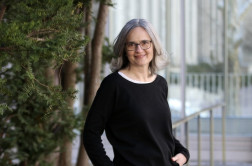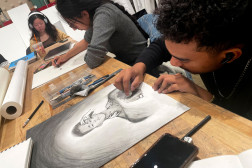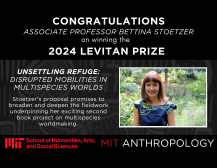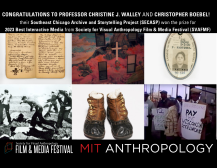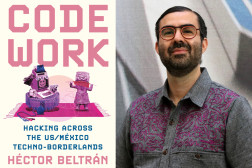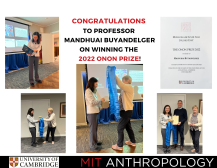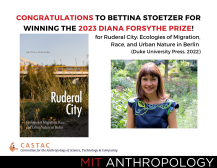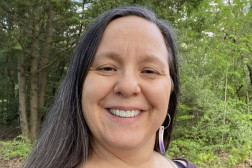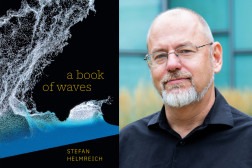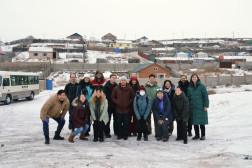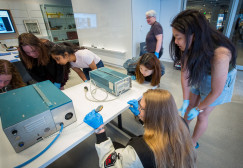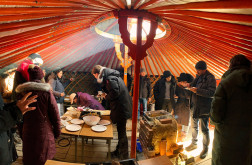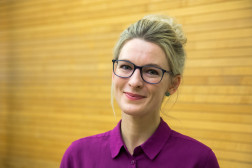News Archive
Heather Paxson named associate dean for faculty of the School of Humanities, Arts, and Social Sciences
Michael Brindley | School of Humanities, Arts, and Social Sciences
April 19, 2024
In the new interdisciplinary course 21A.513 (Drawing Human Experience), students look within themselves for artistic inspiration.
Article: Nicole Estvanik Taylor | Photo: Allegra Boverman | School of Humanities, Arts, and Social Sciences | MIT News
January 29, 2024
Southeast Chicago Archive and Storytelling Project announced as SVA Film & Media Festival 2023 Winner in Best Interactive Media
SVA Film Media Festival
November 15, 2023
Writing code, and decoding the world - MIT News on Héctor Beltrán's new book “Code Work: Hacking Across the U.S./México Techno-Borderlands”
Peter Dizikes | MIT News | Photo: Allegra Boverman
November 14, 2023
Congratulations to Bettina Stoetzer on winning the 2023 Diana Forsythe Prize for her book Ruderal City!
Svetlana Borodina | CASTAC Co-Chair
September 28, 2023
Stefan Helmreich’s new book examines the many facets of oceanic wave science and the propagation of wave theory into other areas of life.
Peter Dizikes | MIT News
August 30, 2023
Exploring the Unexpected Social Questions Behind Everyday Medical Devices
Danna Lorch | MIT News
June 8, 2023
Anthro-Engineering in Ulaanbaatar: MIT NEET Article | Powering the Future
Story by Jiyoo Jye, Head of Communications | NEET, MIT
May 22, 2023
Living Climate Futures 2022 MIT Anthro DV Lab Videos
April 21, 2023
Graham Jones "Paranormal Machines" class featured in Arts at MIT Video "MIT CAST: Cross-Disciplinary Classes"
Arts at MIT Newsletter
February 9, 2023
2022 GAD New Directions Awards: Christine J. Walley wins Honorable Mention
Amercian Anthropological Association Communities | Katie Nelson
August 25, 2022
MIT Anthropology's Prof. Graham Jones among 2022 Bose Grant awardees
Aaron Braddock | Office of the Provost | MIT News
June 13, 2022
Manduhai Buyandelger among inaugural MCSC Seed Award Recipients
Molly Chase | Climate and Sustainability Consortium | MIT News
May 23, 2022
In Memoriam | Arthur Steinberg, 1937-2022
Writers: Frederica Steinberg and Jean Jackson, Professor of Anthropology emerita | Edited by MIT SHASS Communications
May 12, 2022
Living Climate Futures Event Shows a Holistic Way Forward in Climate Fight
article by Stephanie M. McPherson
May 2, 2022
Amy Moran-Thomas receives the Edgerton Faculty Achievement Award
Story prepared by MIT SHASS Communications | Senior Writer: Kathryn O'Neill | Editorial and Design Director: Emily Hiestand
April 26, 2022
